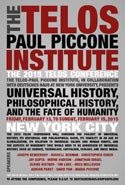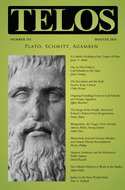 Anyone familiar with Étienne Gilson’s teachings knows he is celebrated for: being a Thomist, his criticism of “essentialism” in philosophy, emphasizing St. Thomas’s revolutionary focus upon the principle of the act of existence (esse) within the natures of things, and a shift away from ideas to existential judgments within Western philosophical thought. Odd, then, are two claims related to Gilson made by people who knew him well. The first, from Gilson’s biographer Lawrence K. Shook, says of Gilson, “An Erasmian humanist at heart, he wanted to end all wars and to liberate men to work out their salvation in the context of personal freedom. He believed that this could be achieved through the kind of education that fostered the acquisitions of moral virtues through the writings of Cicero and Seneca.”
Anyone familiar with Étienne Gilson’s teachings knows he is celebrated for: being a Thomist, his criticism of “essentialism” in philosophy, emphasizing St. Thomas’s revolutionary focus upon the principle of the act of existence (esse) within the natures of things, and a shift away from ideas to existential judgments within Western philosophical thought. Odd, then, are two claims related to Gilson made by people who knew him well. The first, from Gilson’s biographer Lawrence K. Shook, says of Gilson, “An Erasmian humanist at heart, he wanted to end all wars and to liberate men to work out their salvation in the context of personal freedom. He believed that this could be achieved through the kind of education that fostered the acquisitions of moral virtues through the writings of Cicero and Seneca.”
|
Peter A. Redpath’s “Justice in the New World Order: Reduction of Justice to Tolerance in the New Totalitarian World State” appears in Telos 157 (Winter 2011). Read the full version online at the TELOS Online website, or purchase a print copy of the issue here. |
||||
|
Telos Press Publishing · PO Box 811 · Candor, NY 13743 · Phone: 212-228-6479 Privacy Policy · Data Protection Copyright © 2024 Telos Press Publishing · All Rights Reserved |
||||
 This article’s general thesis is that, shortly after World War II, some leading Western intellectuals started to work to build a new world order based upon a modified understanding of national sovereignty and a notion of justice that rejected Machiavellianism. It claims that during the 1960s, this project became hijacked by Western socialists and was turned toward undermining the authority of national constitutions and legal traditions and promoting Machiavellianism on a global scale. Socialists effected this transformation by wedding Nietzsche’s Machiavellianism to Rousseau’s teaching about morality. From Rousseau they adopted the notion of “tolerance”—having the right feelings and right way of reading history about an exploited, sinless, innocent class (the proletariat under communism)—to replace the classical notion of justice as a moral, behavioral, quality (habitually behaving rightly toward other people) in human affairs. Of crucial significance is that, in the process, they changed the West’s understanding of justice from a classical moral category related to behaving rightly toward others into a hermeneutical category of having the right political reading of history.
This article’s general thesis is that, shortly after World War II, some leading Western intellectuals started to work to build a new world order based upon a modified understanding of national sovereignty and a notion of justice that rejected Machiavellianism. It claims that during the 1960s, this project became hijacked by Western socialists and was turned toward undermining the authority of national constitutions and legal traditions and promoting Machiavellianism on a global scale. Socialists effected this transformation by wedding Nietzsche’s Machiavellianism to Rousseau’s teaching about morality. From Rousseau they adopted the notion of “tolerance”—having the right feelings and right way of reading history about an exploited, sinless, innocent class (the proletariat under communism)—to replace the classical notion of justice as a moral, behavioral, quality (habitually behaving rightly toward other people) in human affairs. Of crucial significance is that, in the process, they changed the West’s understanding of justice from a classical moral category related to behaving rightly toward others into a hermeneutical category of having the right political reading of history. 






